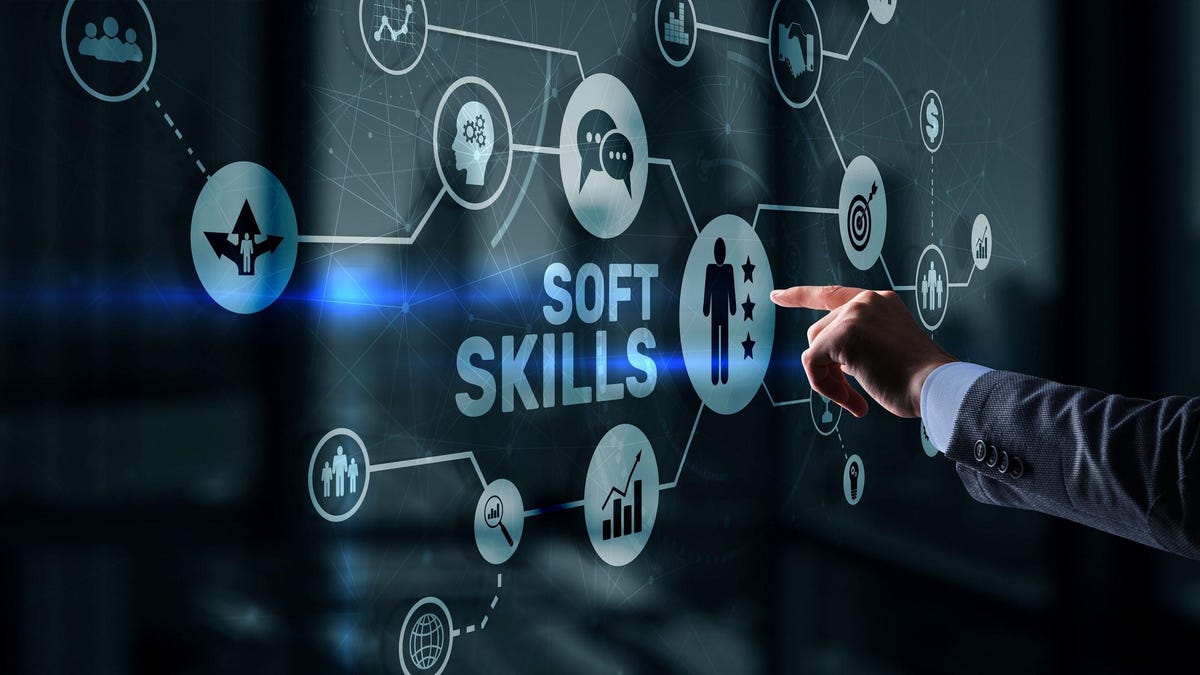
Skills are abilities or expertise needed to perform tasks or activities effectively. They can be categorized into hard skills and soft skills. Hard skills are technical abilities learned through education or training, like coding or graphic design. Soft skills, on the other hand, are interpersonal traits such as communication, teamwork, and problem-solving. Mastering both types is crucial for personal and professional growth. Why are skills so important? They enhance job performance, open up new career opportunities, and improve overall life quality. Whether you're a student, a professional, or someone looking to improve, understanding and developing your skills can lead to success. Ready to learn more? Let's dive into 29 fascinating facts about skills!
Key Takeaways:
- Skills are abilities that can be learned and improved over time. They can be technical (like coding) or interpersonal (like communication), and they are crucial for personal growth and success in the workplace.
- Learning new skills can change your brain and open up new opportunities. Whether it's through online courses, practice, or mentorship, developing new abilities can boost confidence, reduce stress, and improve social connections.
What Are Skills?
Skills are abilities or expertise that enable individuals to perform tasks effectively. They can be learned, practiced, and improved over time. Here are some interesting facts about skills that might surprise you.
-
Skills can be divided into two main categories: hard skills and soft skills. Hard skills are technical abilities, like coding or accounting. Soft skills are interpersonal abilities, like communication or teamwork.
-
Learning new skills can change your brain structure. Neuroplasticity allows the brain to reorganize itself by forming new neural connections.
-
The 10,000-hour rule suggests it takes 10,000 hours of practice to master a skill. This idea was popularized by Malcolm Gladwell in his book "Outliers."
The Importance of Skills in the Workplace
In today's job market, having a diverse skill set is crucial. Employers look for candidates who can bring a variety of abilities to the table.
-
Communication skills are often ranked as the most important soft skill by employers. Being able to convey ideas clearly and listen effectively is vital in any job.
-
Technical skills are becoming increasingly important. With the rise of technology, skills like coding, data analysis, and digital marketing are in high demand.
-
Problem-solving skills are essential for career advancement. Employers value employees who can think critically and find solutions to complex issues.
How to Develop New Skills
Developing new skills can be a rewarding experience. It can open up new opportunities and make you more adaptable in various situations.
-
Online courses are a popular way to learn new skills. Platforms like Coursera, Udemy, and Khan Academy offer courses on a wide range of topics.
-
Practice makes perfect. Regular practice helps reinforce what you've learned and improves your proficiency.
-
Mentorship can accelerate skill development. Learning from someone experienced in the skill you're trying to acquire can provide valuable insights and guidance.
Fun Facts About Skills
Skills aren't just about work; they can also be about hobbies and personal interests. Here are some fun facts about skills you might not know.
-
Playing a musical instrument can improve cognitive skills. It enhances memory, coordination, and even mathematical abilities.
-
Learning a new language can delay the onset of dementia. Bilingual individuals often have better cognitive reserves, which can protect against cognitive decline.
-
Cooking is a skill that combines creativity and science. It involves understanding flavors, techniques, and even chemistry.
The Role of Skills in Personal Development
Skills play a significant role in personal growth. They can boost confidence, improve mental health, and enhance overall well-being.
-
Learning new skills can boost self-esteem. Acquiring new abilities gives a sense of accomplishment and increases self-worth.
-
Hobbies that involve skill development can reduce stress. Activities like painting, knitting, or gardening can be therapeutic and relaxing.
-
Skill development can improve social connections. Joining clubs or groups related to your interests can help you meet like-minded people.
Skills in Different Cultures
Skills are valued differently across cultures. What is considered an essential skill in one culture might not be as important in another.
-
In Japan, the skill of calligraphy is highly respected. It's considered an art form and a way to cultivate patience and focus.
-
In many African cultures, storytelling is a revered skill. It’s a way to pass down traditions, history, and moral lessons.
-
In Italy, culinary skills are deeply ingrained in the culture. Cooking and sharing meals are central to Italian family life and social gatherings.
The Future of Skills
As the world changes, so do the skills needed to thrive. Emerging technologies and global challenges are shaping the future of skills.
-
Artificial intelligence is creating new skill demands. Skills in AI, machine learning, and robotics are becoming increasingly important.
-
Sustainability skills are on the rise. As environmental concerns grow, skills in renewable energy, conservation, and sustainable practices are in demand.
-
Remote work is changing skill requirements. Skills like digital communication, time management, and self-discipline are more important than ever.
Skills and Education
Education systems around the world are adapting to better prepare students for the future. Skills-based learning is becoming more prevalent.
-
STEM education focuses on science, technology, engineering, and math skills. These areas are critical for innovation and economic growth.
-
Vocational training provides practical skills for specific trades. It’s an alternative to traditional academic education and can lead to well-paying jobs.
-
Lifelong learning is becoming a necessity. The rapid pace of change means that continuously updating skills is essential for career longevity.
Interesting Historical Facts About Skills
Skills have played a crucial role throughout history. They have shaped civilizations and driven progress.
-
The skill of writing was a game-changer in ancient civilizations. It allowed for the recording of history, laws, and knowledge.
-
Blacksmithing was a highly valued skill in medieval times. Blacksmiths created tools, weapons, and other essential items.
-
Navigation skills were crucial during the Age of Exploration. Explorers relied on their ability to read stars, maps, and ocean currents to discover new lands.
Skills in Sports and Games
Sports and games require a variety of skills, from physical abilities to strategic thinking.
-
Chess is a game that enhances strategic thinking skills. It requires planning, foresight, and the ability to anticipate an opponent's moves.
-
Team sports develop collaboration skills. Playing sports like soccer or basketball teaches teamwork, communication, and leadership.
Final Thoughts on Skills
Skills shape our lives in countless ways. From communication to problem-solving, they’re essential for personal growth and career success. Mastering a variety of skills can open doors to new opportunities and make everyday tasks easier. Whether it’s learning a new language, improving time management, or honing technical abilities, investing time in skill development pays off. Remember, skills aren’t just about professional achievements; they also enhance our hobbies, relationships, and overall well-being. Keep challenging yourself to learn and grow. The more skills you acquire, the more adaptable and resilient you become. So, take that cooking class, dive into coding, or pick up a musical instrument. Every new skill adds value to your life. Stay curious, keep learning, and watch as your abilities transform your world.
Frequently Asked Questions
Was this page helpful?
Our commitment to delivering trustworthy and engaging content is at the heart of what we do. Each fact on our site is contributed by real users like you, bringing a wealth of diverse insights and information. To ensure the highest standards of accuracy and reliability, our dedicated editors meticulously review each submission. This process guarantees that the facts we share are not only fascinating but also credible. Trust in our commitment to quality and authenticity as you explore and learn with us.


